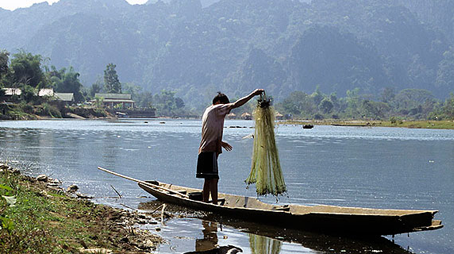

Global Ocean Ecosystem Dynamics
GLOBEC, a study of Global Ocean Ecosystem Dynamics, was initiated in 1990 by the Scientific Committee on Oceanic Research and the Intergovernmental Oceanographic Commission of UNESCO, and incorporated into the IGBP Core Element structure in 1995.
Goal and Objectives
The GLOBEC Science Plan was published in 1997, which set out the GLOBEC goal as:
“To advance our understanding of the structure and functioning of the global ocean ecosystem, its major subsystems, and its response to physical forcing so that a capability can be developed to forecast the responses of the marine ecosystem to global change”.
GLOBEC considered “global change” in a broad sense to encompass the gradual processes of climate change as a result of greenhouse warming and their impacts on marine systems, as well as those shorter-term changes resulting from anthropogenic pressures such as population growth in coastal areas, increased pollution, overfishing, changing fishing practices and changing human uses of the seas.
- Objective 1: To better understand how multiscale physical
environmental processes force large-scale
changes in marine ecosystems - Objective 2: To determine the relationships between structure
and dynamics in a variety of oceanic systems
which typify significant components of the global
ocean ecosystem, with emphasis on trophodynamic
pathways, their variability and the role of nutrition
quality in the food web - Objective 3: To determine the impacts of global change on
stock dynamics using coupled physical,
biological and chemical models linked to
appropriate observation systems and to
develop the capability to predict future impacts
Throughout GLOBEC the programme was managed by a Scientific Steering Committee and GLOBEC research was organised around four foci. The work was initially developed within four Regional Programmes and in 2004 two additional programmes began their research activities. A final regional programme, ICED, grew out of Southern Ocean GLOBEC in the final years of the programme.
Now that the project has ended, many of the continuing activities and
outstanding scientific questions are being taken forward by IMBER.
Legacy
Marine ecosystems and climate change
Oxford University Press (2010) Barange M, Field J G, Harris R H, Hofmann E E, Perry R I and Werner C (eds) 464 pp.